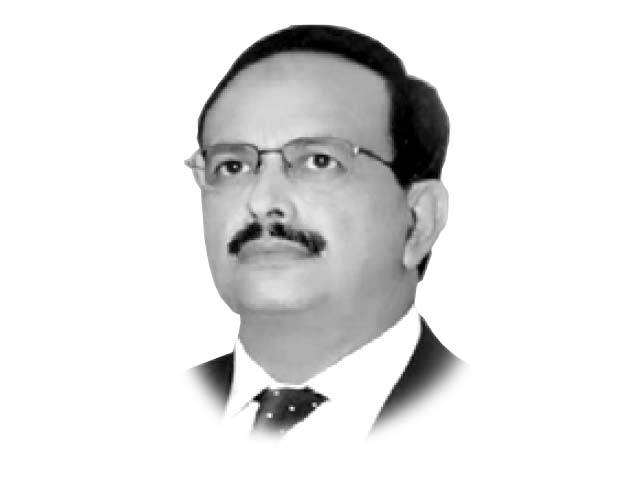SM Zafar Sahib writes in his book that there was no need for Majlis Shura or any formal institution for consultation in the life of the Prophet because there was an established chain of guidance from the heavens and the Prophet himself was present for interpretation and interpretation.
He did not give any command or instruction about his succession. The author has quoted a paragraph from the book of the well-known scholar Dr. Hamidullah about what was hidden in it.
Dr. Sahib writes, “The Prophet himself laid the foundation of the state but deliberately avoided giving any clear instructions on the issue of succession, because every word of the Prophet is considered a law and the final syllable.”
If he had appointed someone from his family as a successor, the political system of Islam would have been declared monarchy. The silence of the Holy Prophet has given Muslims around the world the “flexibility” or authority under which they can create a system of government according to their own circumstances and time. The author calls this “flexibility” Islam. I have named it the democratic Magna Carta.
Apart from Dr. Hamidullah, the author has also referred to the famous Egyptian scholar and jurist Jalal al-Din al-Suyuti’s book “Tarikh al-Khilfai”. Citing many hadiths, Suyuti has written that Prophet Muhammad (pbuh) did not appoint anyone as his successor and left this issue to the Ummah. The author is correct that there was a tribal system of government in the state of Madinah, but organized institutions like legislature, judiciary and administration did not come into existence.
After the departure of the Holy Prophet, Muslims first faced the problem of succession. In this regard, the author has described the meeting held in Thaqifa Bani Sa’idah as a democratic convention and the dialogues and speeches between the Ansar and the emigrants there as a democratic debate. According to the author, in this convention, it was decided under the Quranic order of Wamarhab Shuri Benham that all matters including the appointment of Amirul Momineen will be decided through consultation and this is the spirit of democracy.
Allama Shibli Nomani has called three political groups who have three different views on succession. Muhammad Hussain Heikal says that Hazrat Abu Bakr was elected through voting. Syed Amir Ali has declared this action as an election.
Allama Aslam Jirajpuri has called three groups as three political parties, but the author himself has rightly said that “these three groups with different views cannot be called political parties.” (Because different people in the same party and the same political and ideological group can support different people for leadership) But the action in Thaqifa Bani Saida definitely provided the basis for the formation of parties in the future. About the election of Abu Bakr, SM Zafar Sahib has referred to various authors, according to whom, “Hazrat Abu Bakr was chosen by the Muslims as their Amir and leader due to his high social status and political insight.”
The author, like an expert lawyer, declares the election of the first caliph in accordance with democratic principles and writes that the election of Hazrat Abu Bakr was done through the election according to the Arab culture of that time. The historical words of Hazrat Abu Bakr’s speech in Masjid Nabawi after the pledge of allegiance are recorded in every book of history: “O people! Although I am not the best among you, I have been given authority over you as the Commander of the Faithful.
If I do the right thing, help me and if I go the wrong way, stop me.” Do it later.
By saying, “If I do good, help me, if I do wrong, stop me,” the first Caliph has made himself accountable, which is the main pillar of democracy. According to the author, the first address of Khalifa Aul also established the principle of equality before law and then by saying, “The weakest among you is strong for me as long as I give him his right.” Do not give, and the strongest among you is weak until I take it away from him.”
The first Caliph said that the responsibility of protecting the life and property of the citizens will be the responsibility of the state. The author says that the salient points of the state policy in the first address of the first caliph are the same as in any modern democratic state. During the reign of Hazrat Abu Bakr, the rule of law was based on wealth, social status or physical and financial strength. But there was no discrimination against anyone.
The government of the first caliph was not a monarchy, it was established by public consultation, then it was also decided that the caliph could not do any private business because if the ruler of the time ran a shop, the shops of others would be closed. Today in civilized countries it is ensured that there is no clash of interest in government houses. After that, the author also describes the election of the second Caliph, Hazrat Umar Farooq, as democratic.
The historical events are described in detail in the book, how the first caliph during his death called the Jaid Companions separately and asked for their opinion about his successor. During the discussion, the first caliph himself expressed his opinion and said that “I think Umar bin Khattab is the most suitable for the leadership of the Muslim Ummah.”
A couple of the Companions expressed their apprehensions because of Hazrat Umar’s strict and dignified nature, but the clear majority sincerely said that “Undoubtedly, Hazrat Umar bin Khattab is the most suitable for the leadership of the Muslims at this time.” I have no doubt that Hazrat Abu Bakr RA in his last address to the Muslims, in his will, he declared Hazrat Umar RA as the best and most suitable, but according to Muslim scholars, the will of Hazrat Abu Bakr RA is not a proposal (Nomination or Proposal) and it should be considered as a recommendation and not a final decision.
If the consensus and consensus of the Muslims was on any other person, then he would have been declared entitled to the caliphate. In this regard, the author has given references to many scholars. Maulana Abul Kalam Azad writes, “Muslims were not bound by the recommendation of the first caliph, they could choose someone else as the caliph apart from this recommendation and recommendation, but the Muslims showed political insight by accepting Hazrat Abu Bakr’s suggestion.” ‘
The author has also referred to Maulana Maududi, who has written in his popular book “Khilafat Wimlukit” that “the office of Khalifa is an elective office.” Maulana Abdul Waheed Khan has termed this election as a referendum, in which Muslims gave their free opinion in favor of Hazrat Umar. Dr. Taha Hussain has written that the first Caliph’s recommendation in favor of Hazrat Umar was not mandatory or binding, that is, it was not binding on Muslims.
The author has declared the election of Khalifa II according to Article 41 of the Constitution of Pakistan. The first two caliphs in their first speeches laid down the principles that we see in the present-day democratic system. Here the author has recorded the saying of Hazrat Umar that “Khilafah without consultation is not permissible.”
(to be continued)
(function(d, s, id){
var js, fjs = d.getElementsByTagName(s)[0];
if (d.getElementById(id)) {return;}
js = d.createElement(s); js.id = id;
js.src = “//connect.facebook.net/en_US/sdk.js#xfbml=1&version=v2.3&appId=770767426360150”;
fjs.parentNode.insertBefore(js, fjs);
}(document, ‘script’, ‘facebook-jssdk’));
(function(d, s, id) {
var js, fjs = d.getElementsByTagName(s)[0];
if (d.getElementById(id)) return;
js = d.createElement(s); js.id = id;
js.src = “//connect.facebook.net/en_GB/sdk.js#xfbml=1&version=v2.7”;
fjs.parentNode.insertBefore(js, fjs);
}(document, ‘script’, ‘facebook-jssdk’));



